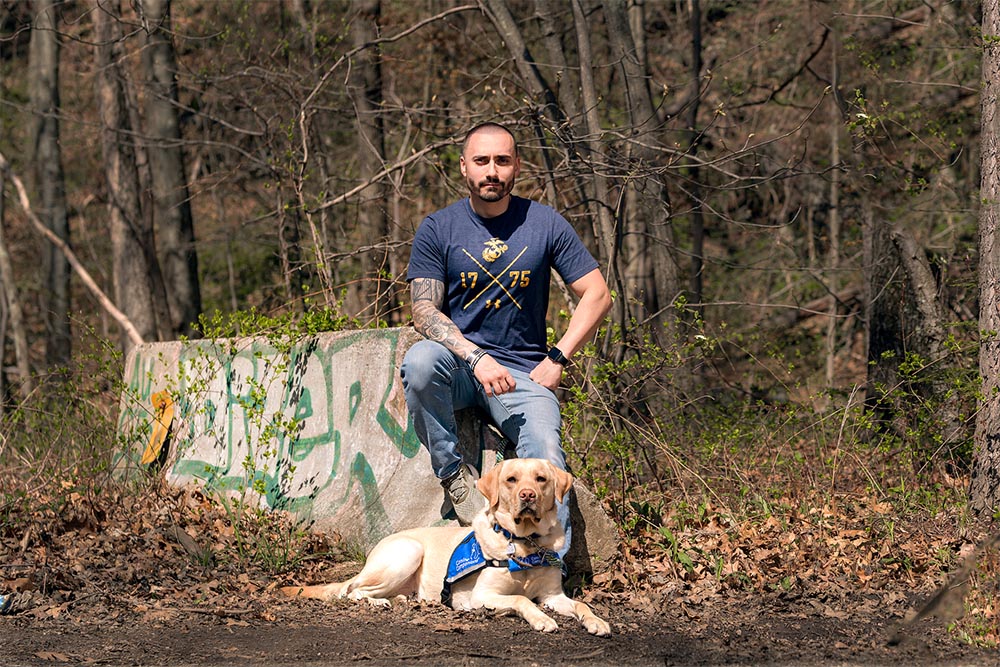 It’s an undeniable fact that dogs make life better for their owners, bringing joy and comfort with their antics and unconditional love. For veterans living with post-traumatic stress disorder (PTSD), a dog may be much more than a best friend. Now, a first-of-its-kind study aims to shed light on the impact of service dogs – trained in specific tasks to mitigate symptoms of PTSD – on quality of life and clinical outcomes.
It’s an undeniable fact that dogs make life better for their owners, bringing joy and comfort with their antics and unconditional love. For veterans living with post-traumatic stress disorder (PTSD), a dog may be much more than a best friend. Now, a first-of-its-kind study aims to shed light on the impact of service dogs – trained in specific tasks to mitigate symptoms of PTSD – on quality of life and clinical outcomes.
University of Arizona College of Veterinary Medicine and the Arizona Canine Cognition Center, led by Dr. Maggie O’Haire and Dr. Evan MacLean, are leading the Service Dog and Veteran Experiences Study (UArizona SERVES) and are key research collaborators of Canine Companions. This five-year study is the first randomized clinical trial to determine the potential medical benefits of service dogs with a control group receiving standard methods of care for PTSD.
For over a decade, Canine Companions has been a principal partner in canine cognition and human-animal interaction research with Dr. MacLean and, more recently, with Dr. O’Haire. As the leading provider of service dogs, Canine Companions collaborates with the University of Arizona researchers to develop a scientific understanding of what makes service dog partnerships successful and how we can best support our dogs and clients.
Canine Companions has provided service dogs to veterans – completely free of charge – for nearly 50 years. And since 2014, they have been placing service dogs trained to specifically mitigate the symptoms of PTSD. Veterans who were matched with their service dogs anecdotally report improved quality of life, social outcomes and independence, but there is currently a lack of scientific research to support these outcomes. Canine Companions works with leading researchers to develop the studies and evidence needed for government programs, insurance and grants to extend coverage to service dogs for psychiatric disability in the veteran population.
“We have no question that task-trained service dogs are clinically beneficial for veterans living with PTSD,” says Paige Mazzoni, chief executive officer of Canine Companions. “The information from the UArizona SERVES study is critical to getting veterans the best care possible. We’re proud to partner with the University of Arizona to further understand the science behind the impact of these life-changing service dogs.”
Learn more about the UArizona SERVES study.
Find out more about the Canine Companions Veterans Initiative at canine.org/veterans.
